Arduino Temperature Measurements
Hot or Cold
There are numerous ways to measure temperature using an Arduino. They run the gamut from thermocouples to solid state devices.
The key is in understanding your range requirements, necessary accuracy, and the size of your wallet.
The articles below introduce you to several of the transducers available. In nearly all of them you will be provided with sketches, pin outs and drawings.
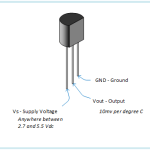
TMP36 Arduino Manual and Tutorial
Using the TMP36, you can make a reasonably accurate and low cost thermometer with your Arduino. Measuring temperature with a micro-controller doesn’t get much easier.
Read Article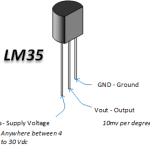
LM35 Arduino Manual and Arduino Tutorial
The LM35 is usually a little cheaper, a little more accurate and simpler to implement than the TMP36. If you don’t need measurements below freezing, this could be the way to go. Another key feature is that you can use a higher voltage as a power source. This can be quite handy in some applications.
Read Article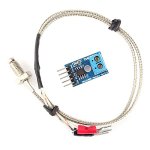
MAX6675 Arduino K Thermocouple Module Manual and Tutorial
The K Thermocouple is a temperature sensor that will allow you to measure some really hot stuff. Using the MAX6675 Arduino Temperature Module, you can do just that. Includes everything you need to get yours working.
Read Article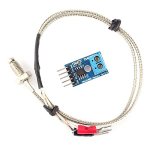
MAX31855 Arduino K Thermocouple Module Manual and Tutorial
This is a little different than the MAX6675. For one, it can measure a greater range. About the only drawback is that you will require a level shifter. This manual provides you everything you need to get started.
Read Article (Link TBD)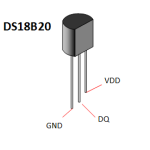
DS18B20 Arduino User Manual and Tutorials
This device is a little different than others. It not only provides one of the more accurate measurements, it has functionality not found in other temperature sensors. The drawback is that it can be a little more complicated to use.
Read Article (Link TBD)